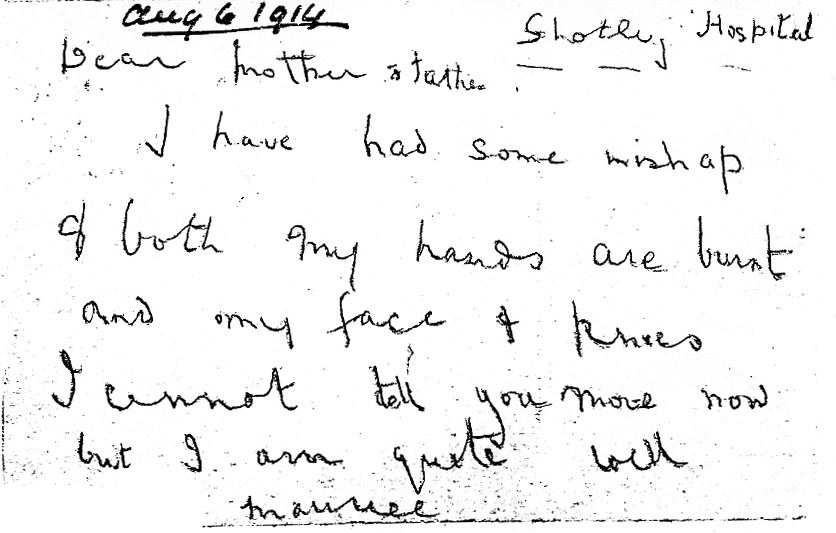| Section 9B |
Colonel Edward Agincourt Brind and his Descendants Edward Agincourt was born at sea on the AGINCOURT. By allaccounts he was extremely clever. He served in and commandedthe 88th Connaught Rangers. He was in the Zulu campaign of1879 and a copy of the farewell speech given when he was dinedout of the Regiment - which was given by his successor in command- is attached. It is interesting to see what a battalion oftough Irishmen thought of him. A picture of him and his secondwife, Florence, is also included - she was described to oneof their sons many years later as being (c. 1887) the mostbeautiful lady in India.- Edward had to retire early from theArmy in 1898 as a Colonel as he was paralysed when his horsebolted and the trap he was driving turned over on top of him.The obituaries of two of his sons General Sir John andAdmiral Sir Patrick and two pages on two of his grandsonsBrigadier James L and Major General Peter H.W. which coverthe careers of these famous members of the family are attached. James had one son Christopher M who is a linguist at GCHQCheltenham and Peter had three sons Robin P who has spent hisworking life in the motor industry. Michael J.S. an out of townproperty development consultant and Nigel P.T. a senior CivilServant in the Ministry of Defence with a spell in the CabinetOffice. Edward's other two sons' lives can be summarised asfollows: Victor Charles was a planter in Ceylon from 1906-1914, He wasthen given one of two regular commissions allocated to the Colonyfor members of the Ceylon Defence Force (the local TA). Hejoined the Royal Field Artillery and commanded a battery inFrance from 1915 until he was wounded in 1918. He was awardedthe DSO and MC and mentioned in Dispatches. He then spent tenyears on loan to the Egyptian Army rising to Colonel. In 1928he returned to the British Army in the rank of Captain andretired in 1932. He rejoined for the second World War andcommanded a Regiment, after which he was Company Secretary ofBaillie Brind & Co Ltd. His daughter Rosemary married intothe financial world and had to run a house which contained sevenloos! His son David J the author of these notes maintainedthe family connection with the Gunners; on his retirement in1985 ended our 150 year connection with the (Bengal and Royal)Artillery and 164 years .continuous service with the armed forcesof the East India Company and the United Kingdom. David had.three sons Robert James a Surveyor, Mark Andrew an Architectand Nicholas Charles a Fund Manager. Maurice A followed his brother Patrick as a Royal Navy cadetpassing through Osborne and Dartmouth Colleges and by 1914was a Lieutenant, but in that year he was rather badly burntwhen the destroyer on which he was serving was blown up by a mineHe returned to sea and in 1916 was given command of a destroyerat the early age of 22. During the war he was blown up twiceand as a result was invalided out of the service in 1924.In 1925 he had married the daughter of an Irish Judge whowas a war widow and after leaving the Navy they farmed inDorset, but due to depressed prices they had to give this up.In 1955 they set up with a friend the firm of Baillie Brind& Co Ltd in Warwickshire on 'a song and a prayer' as a horse training and dealing concern and a small coal and cornbusiness was added. In 1938 the horse side was abandoned anda gravel pit was acquired at Syresham. In the 1940s two newpits were started at Ryton near Coventry and Coton near Coleshillwhen his brothers Victor and Patrick put some funds into thebusiness and became Directors. The coal and corn side was droppedand a stone quarry at Burton Dassett taken over - when the pitsat Syresham and Burton Dassett were worked out a sand pit wasadded at Epwell. During World War II Maurice rejoined the RoyalNavy and for most of the War commanded the Coastal Forces atYarmouth and his wife became Joint Master of the WarwickshireHunt. At one stage during the war while Maurice was away thefirm nearly collapsed, but after the war it did well as a resultof the rebuilding work in Coventry and Birmingham, followedby the construction of additional airfields for the cold war.However the business was always grossly underfunded with homesas collateral for bank loans and as additional gravel bearingland was getting expensive and as some Directors wanted theirfunds to retire on, the firm was sold in 1959. Maurice wasmost disappointed that it could not be kept in the family -his wife left their improved estate to their gardener/chauffeur! |


| Index | Section 1 | Section 2 | Section 3 | Section 4 | Section 5 | Section 6 | Section 7 | Section 8 | Section 9 | Section 10 |